Introduction
Energy efficiency is more crucial than ever in the modern society. The HVAC (heating, ventilation, and air conditioning) systems in our homes are among the major energy consumers in our houses. We can lower our energy costs and contribute to a greener home by concentrating on improving the energy efficiency of our HVAC systems. This post will discuss some Energy-efficient HVAC options that you may use to make your house greener and more sustainable.
Understanding HVAC Efficiency
The ability of a system to turn energy into heating or cooling while limiting waste is referred to as HVAC efficiency. Reduced energy use for the same quantity of heating or cooling is the result of high efficiency. The following are some crucial metrics for calculating HVAC efficiency:
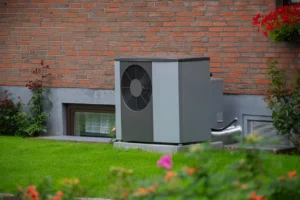
- Seasonal Energy Efficiency Ratio, or SEER: Evaluates the heat pump and air conditioner cooling efficiency over the course of a normal cooling season. Better efficiency is indicated by higher SEER ratings.
- Energy Efficiency Ratio, or EER: Evaluates air conditioner performance during periods of maximum cooling. Similar to SEER, higher EER ratings correspond to greater efficiency.
- Heat Seasonal Performance Factor, abbreviated HSPF: Evaluates the heat pump’s efficiency during a normal heating season when it is in the heating mode. Better efficiency is indicated by higher HSPF scores.
- The annual fuel utilization efficiency, or AFUE: Gauges how effective gas furnaces are. Better efficiency is shown by higher AFUE percentages.
Traditional HVAC systems often suffer from inefficiencies such as poor maintenance, outdated technology, and energy losses through ductwork and components.
Energy-Efficient HVAC Technologies
There are several advanced technologies available today that can significantly improve HVAC efficiency:
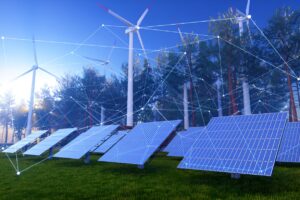
- High-Tech Air Conditioning Systems: ENERGY STAR-rated units, which meet or above federal standards for energy efficiency, are among them. Compared to ordinary units, they perform as well or better while using less energy.
- Variable Speed Air Conditioners and Heat Pumps: Rather than constantly operating at maximum capacity, these systems may modify their output to match the precise heating or cooling requirements of your home. There are large energy savings as a result.
- Geothermal Heat Pumps: These systems use your home’s natural temperature to heat and cool it. They can save energy use by up to 50% and are incredibly efficient.
- Ductless Mini-Split Systems: The absence of ductwork in these systems can help reduce energy loss significantly. Rather, they provide exact control over temperature and energy consumption by distributing air straight into various zones of your house.
- Zoning systems and smart thermostats: Smart thermostats automatically change the temperature to conserve energy by learning your preferences and schedule. By allowing you to independently regulate the temperature in various rooms of your house, zoning systems help you avoid spending energy on heating or cooling empty places.
Improving Existing HVAC Systems
If you’re not ready to replace your entire HVAC system, there are still many ways to improve its efficiency:
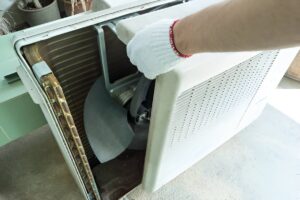
- Regular Maintenance and Tune-Ups: You may reduce energy waste by keeping your HVAC system in good operating order. Maintaining your system’s cleanliness and service schedule will help to make sure it runs well.
- Upgrading to High-Efficiency Filters: High-efficiency filters can lower energy usage by enhancing air quality and facilitating smoother system operation.
- Sealing and Insulating Ducts: A considerable proportion of heated or cooled air can escape through leaky ducts. The efficiency of your system can be increased by up to 20% by sealing and insulating them.
- Retrofitting Older Systems: Older systems can be updated with new, energy-saving parts. For instance, adding a programmable thermostat or installing a new, high-efficiency furnace blower can have a significant impact.
Renewable Energy Integration
Integrating renewable energy sources with engery-efficient HVAC system can further enhance energy efficiency and sustainability:
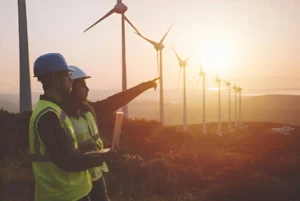
- Solar-Powered HVAC Systems: You can lessen or perhaps completely eliminate your need on grid power by using solar panels to generate electricity for your HVAC system.
- Using Wind Energy: You can utilize wind turbines in some places to power your house and air conditioning system.
- Hybrid HVAC Systems: These integrate renewable and conventional energy sources. A hybrid heat pump, for instance, might run on grid electricity at night and solar power during the day.
Practical Tips for Homeowners
There are also many simple habits and practices you can adopt to make energy-efficient HVAC :
- Conducting an Energy Audit: An energy audit can point out places in your house where energy is being lost and make recommendations for changes.
- Setting Thermostats Properly: You can significantly reduce the amount of energy you use by adjusting your thermostat by a few degrees. When you’re sleeping or away in the winter, set it lower; in the summer, set it higher.
- Using Ceiling Fans: You can modify your thermostat by using ceiling fans to circulate air, which will make your home feel warmer in the winter and colder in the summer.
- Correct Insulation and Leak Sealing: You can reduce energy loss and ease the strain on your energy-efficient HVAC system by making sure your house is adequately insulated and sealing any leaks around windows and doors.
ALSO READ ABOUT PROJECTS TO PROMOT GREENER
Financial and Environmental Benefits
Switching to an energy-efficient HVAC system can have significant financial and environmental benefits:

- Cost Savings: Over time, energy-efficient technologies can save you a significant amount of money on your energy bills.
- Environmental Impact: You can help create a healthy planet by spending less energy and lowering your carbon footprint.
- Incentives and Rebates: To lower the upfront cost of upgrading to energy-efficient technologies, numerous governments and utilities provide incentives and rebates.
Energy-Efficient HVAC Case Studies and Success Stories
Here are a few examples of homes that have successfully implemented energy-efficient HVAC solutions:
- A California family cut their energy costs by thirty percent by installing a smart thermostat and replacing their outdated air conditioner with an ENERGY STAR-rated one.
- A Texas homeowner built a geothermal heat pump, which resulted in a half-cost reduction for heating and cooling.
- An residential complex in New York City reduced energy expenses by hundreds of dollars a year by installing a variable speed energy-efficient HVAC system and better duct insulation.
Conclusion
There are several advantages to energy-efficient HVAC systems, including financial savings and environmental preservation. You may save your energy costs, increase home comfort, and help the environment by making more engery-efficient HVAC system. Make an appointment for an energy audit or speak with an HVAC specialist right now to learn more about your options for a more energy-efficient HVAC with house.
For more details alos visit here website
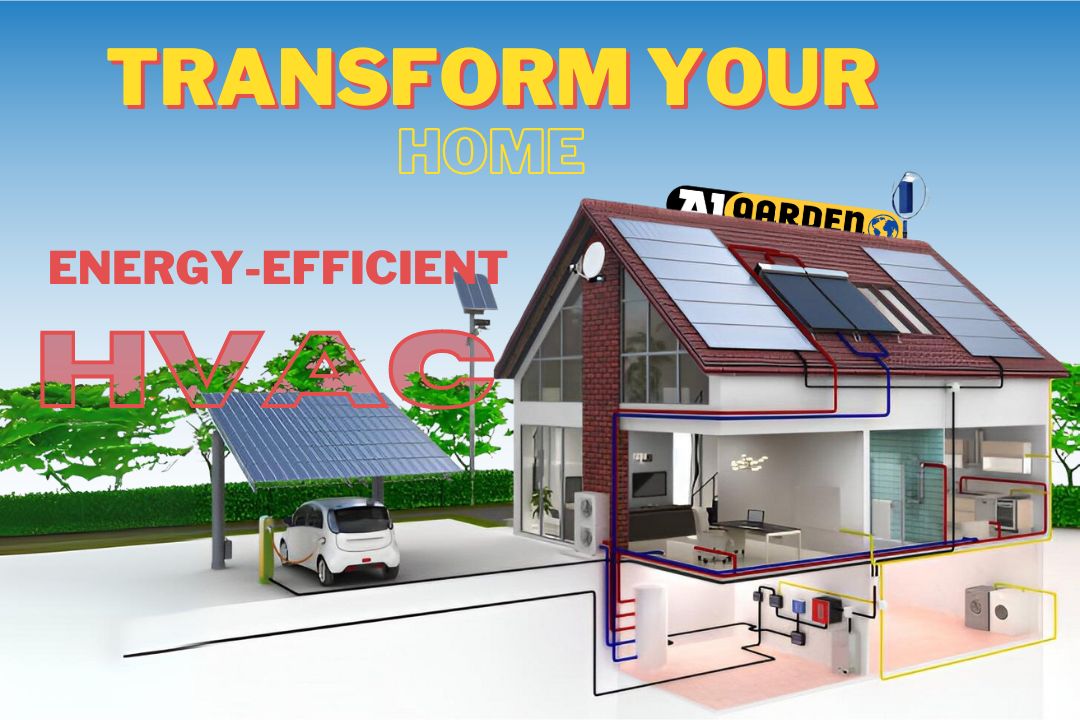
1 thought on “Transform Your Home: Energy-efficient HVAC Options for a Greener House in the 21st Century”